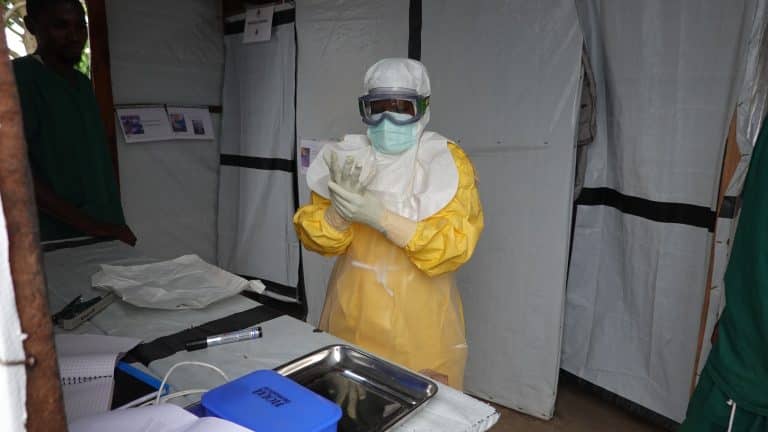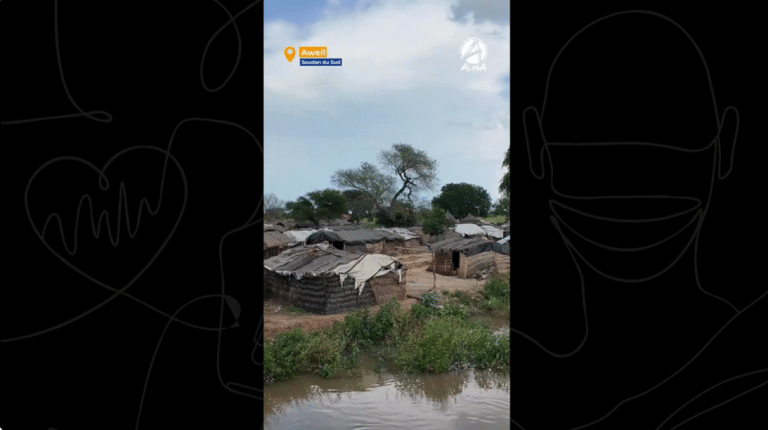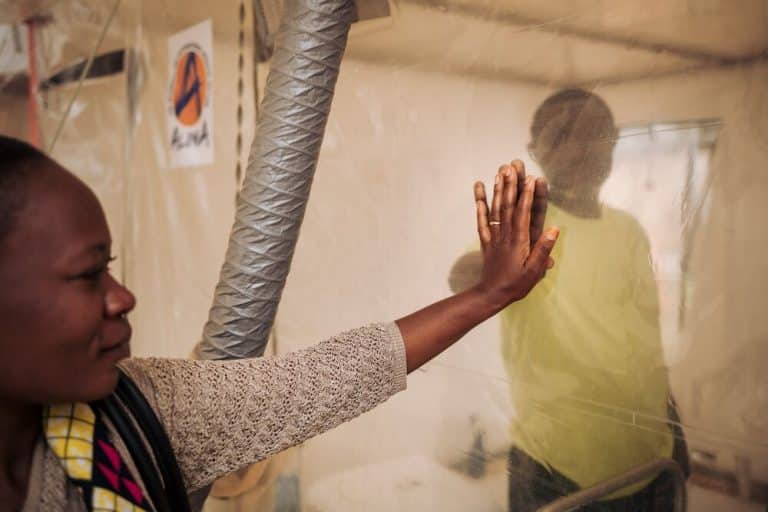Epidemics and emerging diseases
- Over 14 million people die each year from infectious diseases, with 90% of deaths occurring in developing countries (The Lancet).
- Since 1940, over 330 emerging infectious diseases have been identified (Pasteur Institute).
- 75% are zoonoses, transmitted from animals to humans (WHO).
In a world that is more interconnected than ever, the emergence and resurgence of diseases are multiplying, requiring a rapid and effective response. Faced with these health crises, ALIMA deploys innovative solutions adapted to humanitarian contexts.
Humanitarian context and challenge
A growing global health threat
Emerging infectious diseases arise when a new virus infects humans or when an existing virus spreads on a large scale.
Key examples include:
- Ebola, Lassa fever, measles, cholera, Mpox, etc.
- Diseases of animal origin (avian influenza, chikungunya, SARS, Covid-19)
Climate change, rapid urbanization, and globalization are accelerating the spread of epidemics, putting already fragile health systems at risk.
💡 Why does this matter?
- Developing countries are the most affected and have few resources to fight outbreaks.
- Quick action is crucial to contain diseases and save lives.
- Unprepared health systems lead to overcrowded hospitals and an increase in preventable deaths.
➡️ To address these challenges, ALIMA acts quickly to prevent, detect, and respond to epidemics.
ALIMA’s action
💡How does ALIMA respond to epidemics?
ALIMA combines emergency response, research, and innovation to contain epidemics and improve patient care.
🔹 Emergency response
- Strengthening health systems: expanding bed capacity, providing medical equipment.
- Medical care and psychosocial support for patients.
- Infection prevention and control: training and supplying PPE equipment.
- Epidemiological surveillance: rapid case detection and follow-up of contacts.
- Vaccination campaigns and access to essential treatments.
- Community engagement to limit the spread of diseases.
🔹Research and innovation
💡 ALIMA conducts clinical research projects through CORAL (Clinical and Operational Research Alliance) in partnership with Inserm and the PACCI program.
🔬 The aim is to develop treatments and strategies adapted to humanitarian contexts, including testing drugs for Lassa fever or for post-exposure prophylaxis to Ebola.
🏥 Example: the CUBE (Biosecure Emergency Room for Epidemics)
Developed in the DRC, this mobile and self-contained treatment unit has transformed Ebola patient care.
🔹Training and capacity building
👩⚕️ALIMA provides training to local healthcare teams:
- Doctors and nurses on epidemic management.
- Logisticians specializing in water and sanitation.
- Surveillance and rapid response.
📌 Since 2009, ALIMA has led over 30 research projects and responded to numerous outbreaks, including Ebola, cholera, Covid-19, measles, Lassa fever, and Mpox.
Frequently Asked Questions (FAQs)
Increased human-animal interactions, climate change, and population displacement are accelerating the emergence of new diseases.
ALIMA prioritizes interventions based on the urgency of the health crisis, population needs, and the response capacity of local authorities.
- Epidemics covered: Ebola, cholera, measles, meningitis, malaria, Lassa fever, Mpox, and more.
- Our approach: medical care, psychosocial support, prevention, vaccination, research, and healthcare worker training.
On the ground
Related news

Three Months to Eradicate Ebola: The Power of Collective Action in Kasai
After three months of collective mobilization, the 16th Ebola outbreak in the Democratic Republic of the Congo (DRC) was declared over on November 30, 2025.

South Sudan: when the climate crisis becomes a health crisis
In Aweil, recurring floods cut off entire villages. Malaria, diarrhea, pneumonia: children are on the front lines. Since 2025, ALIMA has been deploying an emergency

Ebola in Kasai: A Race Against Time!
Since late August, a new Ebola outbreak has struck Kasai in the Democratic Republic of Congo. With 40 deaths already and more than 1,400 contacts


